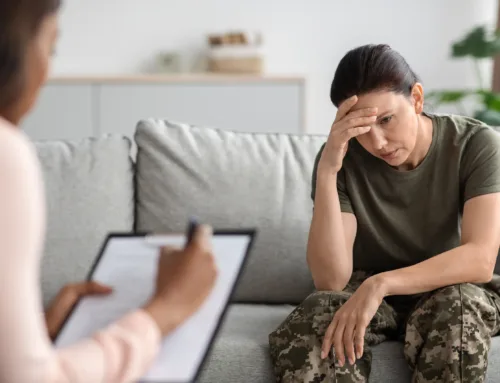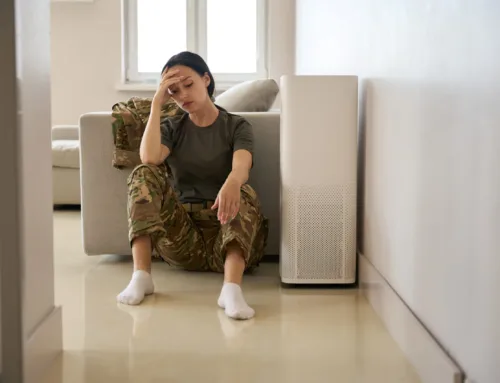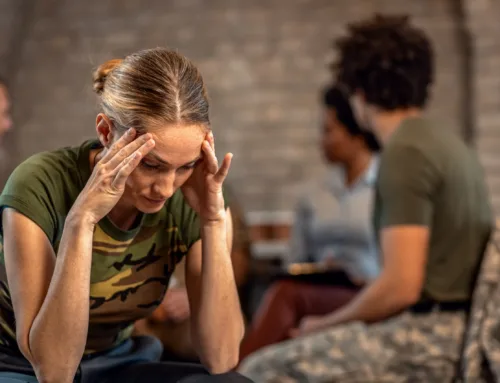Understanding Anxiety in Veterans: Recognizing the Most Common Signs
For many veterans, the transition to civilian life can be difficult mentally and emotionally. Among the common challenges veterans face during this transition is anxiety, which often stems from experiences during military service. Teaching veterans and their loved ones to recognize the signs of anxiety can lead to timely support and treatment. This blog aims to shed light on the most common signs of anxiety that veterans may experience.
Excessive Worrying or Fear
One of the most noticeable signs of anxiety in veterans is persistent, excessive worrying. For example, a veteran with anxiety may be preoccupied by future events, their safety or the well-being of loved ones. Unlike the usual worries that everyone experiences, this worrying is more intense, difficult to control and often seems disproportionate to the situation.
Restlessness or Feeling on Edge
Many veterans with anxiety report feeling restless or on edge. This can manifest as an inability to relax, a constant feeling of nervousness or being easily startled. It’s a state of heightened alertness that often links back to the ‘fight or flight’ response developed in combat or high-stress environments during service.
Irritability or Mood Swings
Anxiety can also lead to significant mood swings or irritability. Veterans might find themselves feeling agitated or angry without a clear reason, or their moods may shift rapidly. These changes can be confusing and distressing, both for the veterans themselves and for their families and friends.
Difficulty Concentrating
Struggling to focus on tasks or experiencing frequent mind wandering are common in veterans with anxiety. This lack of concentration can impact daily activities and job performance, contributing to a sense of frustration and decreased self-esteem.
Sleep Disturbances
Insomnia or disrupted sleep patterns are prevalent among veterans experiencing anxiety. They may have trouble falling or staying asleep, or they might suffer from restless and unsatisfying sleep. Nightmares, particularly those related to traumatic events, can also be a factor.
Physical Symptoms
In addition to affecting mental health, anxiety can manifest physically. Common symptoms include muscle tension, headaches, rapid heartbeat and gastrointestinal issues. These symptoms can be debilitating and further exacerbate feelings of anxiety.
Avoidance Behavior
Veterans with anxiety may start avoiding places, people or activities that trigger or worsen their anxiety. This can include crowded places, certain social settings or events that remind them of their military service. While avoidance might provide short-term relief, it can lead to increased isolation and reinforce anxiety.
Hypervigilance
Hypervigilance is a state of being constantly tense and on the lookout for potential threats. This can be traced back to survival skills learned in combat but becomes problematic when the danger is no longer present. It can make normal life challenging and exhausting.
Flashbacks and Traumatic Memories
Veterans with anxiety may relive traumatic events through flashbacks which feel like they are experiencing the event all over again. These can be triggered by sights, sounds, smells or even thoughts that remind them of their experiences, leading to intense anxiety responses.
Substance Abuse
In some cases, veterans might turn to alcohol or drugs to cope with their anxiety. While this can provide temporary relief, it often exacerbates the problem in the long run and can lead to dependency.
Recognizing these signs of anxiety in veterans is the first step towards seeking help. It’s essential to understand that these symptoms are not signs of weakness but are reactions to extraordinary experiences. If you or a veteran you know is experiencing these symptoms, it’s important to reach out for support. There are many resources available, including counseling, therapy, support groups, and medication, that can help manage and treat anxiety. Remember, seeking help is a sign of strength and a crucial step in the journey towards recovery and peace.
Disclaimer: This blog is for informational purposes only and should not replace professional medical advice. If you are experiencing symptoms of anxiety, please consult a healthcare professional.






